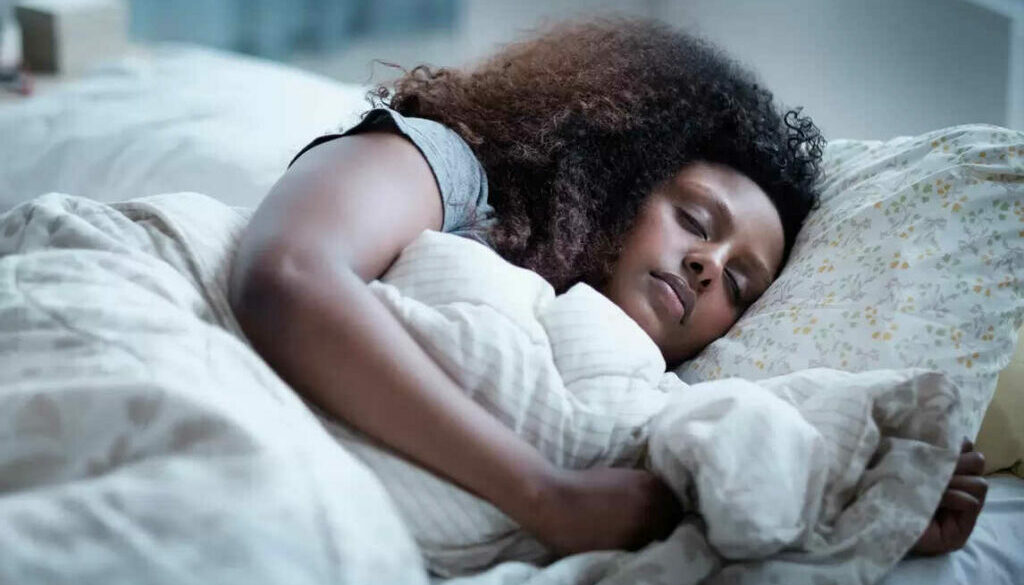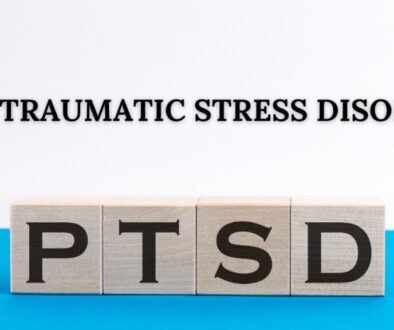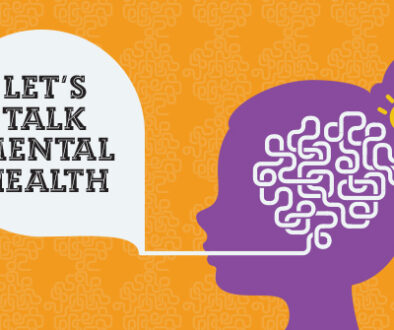The Connection Between Sleep and Mental Well-being
Sleep plays a crucial role in our overall well-being, both physically and mentally. It is an essential part of our daily lives, providing rest and restoration for the body and mind. However, the significance of sleep goes beyond mere restfulness, as it has a profound impact on our mental health. In this article, we will explore the intricate connection between sleep and mental well-being, shedding light on the importance of quality sleep and its effects on our emotional and cognitive functioning.
Understanding Sleep
Before delving into the connection between sleep and mental well-being, it’s crucial to understand what sleep entails. Sleep is a naturally recurring state of reduced consciousness and physical activity. It consists of different stages that cycle throughout the night, with each stage serving a unique purpose in the restorative process. By understanding the complexities of sleep and its cycles, we can comprehend its interplay with our mental health.
The Impact of Sleep on Mental Well-being
Sleep deprivation has a profound effect on mental health. Lack of adequate sleep disturbs the delicate balance needed for emotional well-being, leaving us vulnerable to stress, mood disorders, and cognitive impairments. Sleep regulates our emotions, helps us maintain a stable mood, and enhances cognitive processes such as attention, memory, and decision-making. Therefore, the quality and quantity of sleep directly impact our mental well-being.
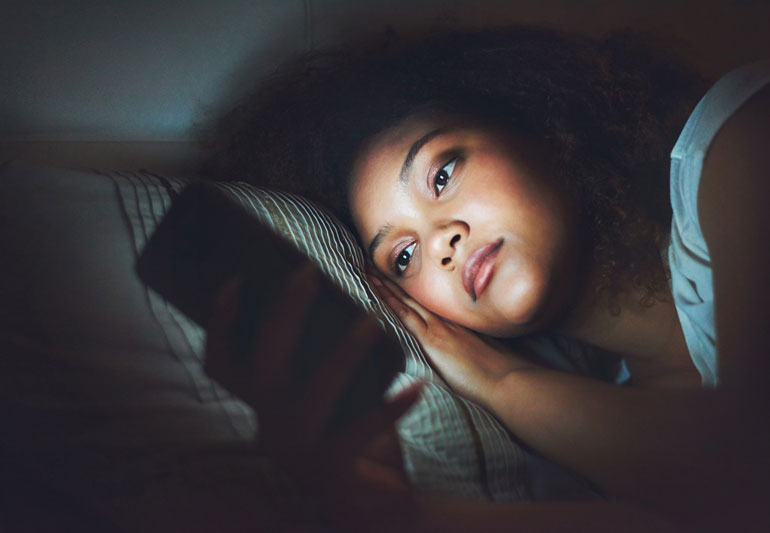
Sleep Disorders and Mental Health
Sleep disorders, such as insomnia, sleep apnea, and restless leg syndrome, can significantly affect mental health. Research has shown a strong association between sleep disorders and psychiatric conditions such as anxiety disorders, depression, bipolar disorder, and schizophrenia. Recognizing and managing sleep disorders is crucial for improving mental well-being and preventing or treating mental illnesses.
Common Sleep Disorders
Sleep disorders are conditions that affect the ability to sleep well on a regular basis. They can be caused by various factors, including underlying medical conditions, lifestyle choices, and psychological factors. Here are some common sleep disorders:
- Insomnia: Insomnia is characterized by difficulty falling asleep or staying asleep, resulting in inadequate rest. It can be caused by stress, anxiety, depression, medications, or certain medical conditions.
- Sleep Apnea: Sleep apnea is a disorder in which breathing repeatedly stops and starts during sleep. This interruption in breathing can lead to poor quality sleep and excessive daytime tiredness. Obstructive sleep apnea is the most common form, caused by relaxed throat muscles blocking the airway.
- Restless Leg Syndrome (RLS): RLS is characterized by uncomfortable sensations in the legs, often described as crawling or tingling, that occur primarily at night. These sensations can cause an irresistible urge to move the legs, leading to disrupted sleep.
- Narcolepsy: Narcolepsy is a neurological disorder that affects the brain’s ability to control sleep-wake cycles. People with narcolepsy experience excessive daytime sleepiness and may suddenly fall asleep or lose muscle control during the day.
- Parasomnias: Parasomnias are a group of sleep disorders that involve abnormal behaviors or movements during sleep. This can include sleepwalking, night terrors, or sleep-related eating disorders.
Association Between Sleep Disorders and Mental Illnesses
There is a strong association between sleep disorders and mental illnesses. Research has shown that individuals with mental health conditions are more likely to experience sleep problems, and vice versa. The relationship between sleep disorders and mental illnesses can be complex and bidirectional.
- Depression and Anxiety: Insomnia is commonly associated with both depression and anxiety disorders. The inability to sleep can worsen symptoms of depression, leading to a negative cycle where sleep deprivation exacerbates the mental health condition. Similarly, anxiety can cause racing thoughts and restlessness, making it difficult to fall asleep or stay asleep.
- Bipolar Disorder: Individuals with bipolar disorder often experience disrupted sleep patterns. During manic episodes, they may have a decreased need for sleep, while during depressive episodes, they may experience hypersomnia (excessive sleepiness). These irregular sleep patterns can contribute to the severity and frequency of mood swings.
- Schizophrenia: Sleep disturbances are prevalent in individuals with schizophrenia. Both insomnia and excessive daytime sleepiness can occur, and disruptions to the sleep-wake cycle can impact cognitive functions and overall mental well-being.
- Post-Traumatic Stress Disorder (PTSD): People with PTSD often experience nightmares, flashbacks, and intrusive thoughts that can interfere with sleep. Sleep disturbances can further exacerbate symptoms of PTSD, as adequate sleep is essential for processing and consolidating traumatic memories.

Managing Sleep Disorders for Improved Mental Well-being
Managing sleep disorders is crucial for improving mental well-being and overall quality of life. Here are some strategies that can help:
- Sleep Hygiene: Establishing good sleep hygiene practices is essential for promoting healthy sleep. This includes maintaining a consistent sleep schedule, creating a comfortable sleep environment, avoiding stimulating activities before bed, and limiting caffeine and alcohol intake.
- Cognitive-Behavioral Therapy for Insomnia (CBT-I): CBT-I is a form of therapy specifically designed to treat insomnia. It focuses on identifying and changing unhealthy thoughts and behaviors related to sleep, promoting relaxation techniques, and improving sleep habits.
- Medication: In some cases, medication may be prescribed to help manage sleep disorders. This can include sedatives, sleep aids, or medications specifically targeted for the underlying cause of the sleep disorder. It is important to consult with a healthcare professional for proper diagnosis and medication management.
- Stress and Anxiety Management: Addressing and managing stress and anxiety can significantly improve sleep quality. Techniques such as meditation, deep breathing exercises, and stress-reduction strategies can help calm the mind before bed.
- Treatment for Underlying Mental Health Conditions: If a sleep disorder is closely linked to a mental illness, treating the underlying mental health condition may also alleviate sleep disturbances. This can involve therapy, medication, or a combination of both.
Creating a Sleep-Friendly Environment
Creating a sleep-friendly environment is essential for ensuring a good night’s sleep and promoting mental well-being. Here are some tips to create a conducive sleeping environment:
- Comfortable Bed and Bedding: Invest in a comfortable mattress and pillows that adequately support your body. Choose soft and breathable bed linens to enhance comfort.
- Reduce Noise: Minimize noise disturbances by using earplugs, white noise machines, or soundproofing techniques. Make sure your bedroom is in a quiet location and inform household members about your sleep schedule.
- Manage Temperature: Maintain a cool and comfortable temperature in your bedroom. If necessary, use fans, air conditioning, or blankets to regulate the temperature according to your preferences.
- Control Lighting: Ensure your bedroom is dark enough for quality sleep. Use blackout curtains or wear an eye mask to block out any unwanted light. Consider using dimmer switches or nightlights for middle-of-the-night trips to the bathroom.
- Declutter and Organize: Keep your bedroom clean, organized, and free from clutter. A tidy environment promotes relaxation and reduces stress levels, aiding in better sleep.
Establishing a Consistent Sleep Schedule
Maintaining a consistent sleep schedule helps regulate your body’s internal clock, also known as the circadian rhythm. Here’s how to establish a consistent sleep schedule:
- Set Fixed Bedtimes and Wake-Up Times: Determine a bedtime and wake-up time that allows for sufficient sleep and aligns with your daily routine. Stick to these times, even on weekends or days off, to maintain a regular sleep pattern.
- Avoid Napping for Extended Periods: If you feel the need to nap during the day, limit it to short power naps of around 20 minutes. Long daytime naps can disrupt your sleep schedule and make it harder to fall asleep at night.
- Avoid Electronic Devices Before Bed: The blue light emitted by electronic devices like smartphones and tablets can interfere with the sleep-inducing hormone melatonin. Limit screen time at least an hour before bedtime to promote better sleep.
- Create a Relaxing Bedtime Routine: Establish a pre-sleep routine that helps you wind down and signals to your body that it’s time to sleep. This can include activities such as reading a book, taking a warm bath, or practicing relaxation techniques like deep breathing or meditation.
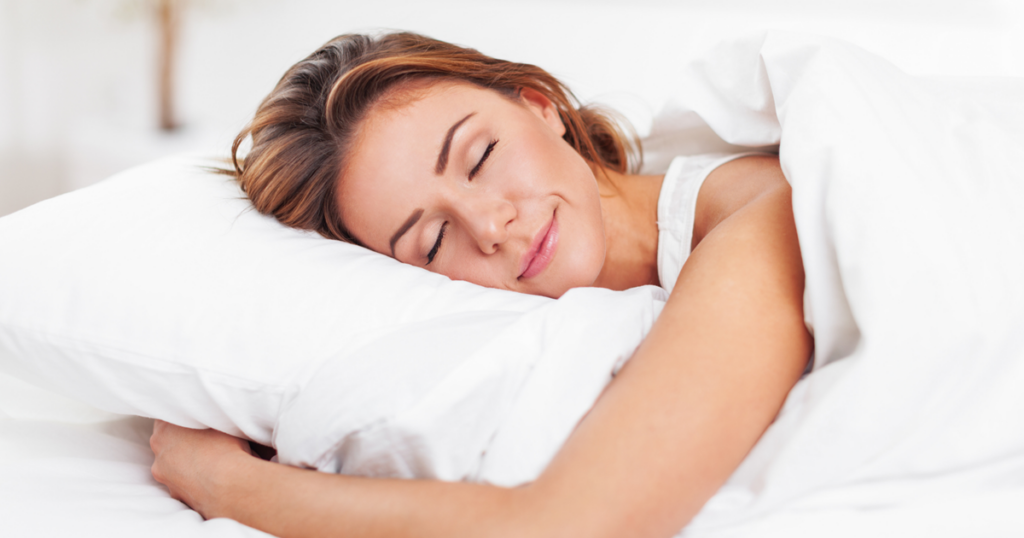
Practicing Relaxation Techniques
Relaxation techniques can help calm the mind and prepare your body for better sleep. Consider the following techniques:
- Deep Breathing: Practice deep breathing exercises to promote relaxation and reduce stress. Inhale deeply through your nose, hold for a few seconds, and exhale gradually through your mouth. Focus on your breath and let go of any tension or racing thoughts.
- Progressive Muscle Relaxation: Start from your toes and work your way up, progressively tensing and then relaxing each muscle group in your body. This technique promotes physical and mental relaxation, helping prepare for sleep.
- Guided Imagery: Visualize peaceful and calming scenes or situations, allowing your mind to wander to a serene place. This technique can help reduce anxiety and promote a peaceful state of mind conducive to sleep.
- Mindfulness Meditation: Practice mindfulness by focusing your attention on the present moment. Pay attention to your breath, bodily sensations, or sounds in your surroundings. Cultivating mindfulness helps quiet the mind and reduces racing thoughts that may interfere with sleep.
Avoiding Sleep Disruptors
Certain factors can disrupt your sleep and negatively impact your mental well-being. Here’s how to avoid them:
- Caffeine and Stimulants: Limit or avoid caffeine, nicotine, and other stimulants, especially close to bedtime. These substances can interfere with sleep quality and make it harder to fall asleep.
- Alcohol and Heavy Meals: While alcohol may initially induce drowsiness, it can disrupt your sleep later in the night. Additionally, avoid heavy meals close to bedtime as digestion can interfere with sleep. Opt for lighter, sleep-friendly snacks if needed.
- Excessive Fluid Intake: Minimize fluid intake, particularly in the hours leading up to bedtime. This can reduce the likelihood of waking up to use the bathroom during the night.
- Stressful Activities Before Bed: Engaging in stimulating or stressful activities, such as intense exercise or work-related tasks, close to bedtime can make it challenging to relax and fall asleep. Schedule these activities earlier in the day to ensure adequate wind-down time before bed.
The Role of Exercise and Diet in Sleep Quality
Exercise and diet play vital roles in promoting better sleep and supporting mental well-being. Consider the following:
- Exercise: Regular physical activity has been shown to improve sleep quality. Aim for at least 30 minutes of moderate-intensity exercise on most days of the week. However, avoid intense exercise close to bedtime, as it can stimulate the body and make it difficult to fall asleep. Morning or early afternoon workouts are generally more beneficial for sleep.
- Sleep-Friendly Foods: Several foods contain sleep-promoting compounds that can facilitate better sleep. These include foods rich in tryptophan, magnesium, potassium, and calcium. Examples include turkey, nuts, seeds, bananas, tart cherries, and warm milk.
Importance of Seeking Help
Recognizing signs of sleep and mental health problems is crucial in finding appropriate help. Seeking professional assistance, such as therapy and counseling, can provide valuable guidance and support in managing sleep and mental health issues. A comprehensive approach to well-being considers the interconnectedness of sleep, mental health, and professional guidance.
The Connection Between Sleep and Productivity
Poor sleep directly affects productivity, resulting in decreased performance, impaired concentration, and diminished cognitive abilities. By improving sleep, individuals can enhance their productivity levels, leading to better work and personal achievements. Prioritizing sleep as a means to improve productivity is essential in today’s fast-paced world.
Sleep and Emotional Regulation
Sleep is intricately tied to emotional regulation. Sufficient sleep helps regulate emotions effectively, reducing the risk of mood swings and emotional instability. The relationship between sleep, emotions, and mental well-being highlights the importance of prioritizing sleep as an essential aspect of emotional self-care.
The Impact of Technology on Sleep and Mental Health
The advent of technology has introduced new challenges to our sleep patterns and mental health. Excessive use of electronic devices, especially before bedtime, can disrupt sleep cycles and contribute to sleep disorders. By recognizing the negative effects of technology and implementing strategies to reduce its impact, we can improve sleep quality and safeguard our mental well-being.
Sleep Hygiene Practices
Incorporating good sleep hygiene practices into our daily routines is essential for optimal sleep and mental well-being. Establishing a consistent sleep schedule, creating a relaxing bedtime routine, and ensuring a comfortable sleep environment are all crucial components of maintaining good sleep hygiene.
Sleep and Relationships
Sleep quality can significantly impact relationship dynamics. Disrupted or inadequate sleep can lead to irritability, decreased emotional availability, and conflicts within relationships. Prioritizing shared sleep habits and implementing strategies for better sleep within relationships is vital for nourishing healthy and harmonious connections.
Sleep as Self-care
In the realm of self-care, sleep often takes a backseat. However, prioritizing sleep as an act of self-care is essential for our overall well-being. Incorporating relaxation techniques, such as mindfulness or meditation, into our bedtime routines can enhance the quality of sleep and contribute to improved mental and emotional health.
The Connection Between Sleep and Physical Health
Sleep’s impact extends beyond mental well-being, directly influencing our physical health. It plays a crucial role in maintaining a healthy immune system, regulating hormone production, and preventing chronic diseases. Recognizing the interplay between physical and mental well-being emphasizes the significance of quality sleep for overall health.
Conclusion
In conclusion, the connection between sleep and mental well-being is undeniable. Quality sleep serves as a vital pillar for our emotional and cognitive functioning, impacting our mood, stress levels, and cognitive abilities. Understanding the relationship between sleep and mental health allows us to prioritize sleep as an essential aspect of self-care and recognize the importance of seeking professional help when needed. By fostering healthy sleep habits, we can enhance our overall mental well-being and lead more fulfilling lives.
Also Read:
The Ultimate Guide to Glowing Skin: Tips and Tricks
